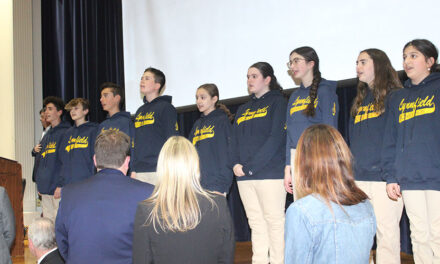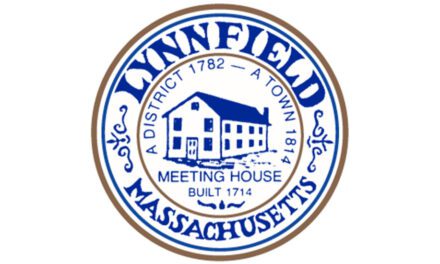Published September 4, 2019
By DAN TOMASELLO
LYNNFIELD — Mark your calendars.
After two months in the making, the Board of Selectmen voted on Aug. 27 to schedule a Special Town Meeting for Thursday, Sept. 26, beginning at 7 p.m. in the Lynnfield Middle School auditorium. A quorum of 175 voters is needed for the session to be held.
The Friends of the Lynnfield Rail Trail submitted a citizens’ petition containing 325 signatures last month that requested a Special Town Meeting be held. In an interview with the Villager, Town Clerk Trudy Reid said 209 signatures were certified for the Special Town Meeting.
The last Special Town Meeting took place in June 2014, which is when voters overwhelmingly approved purchasing Centre Farm.
The warrant article will ask Special Town Meeting to appropriate $348,000 in order to cover the $10 million rail trail’s final design engineering costs. Finance Committee Chairman Chris Mattia said recently funds in the town’s Sale of Real Estate Account and the Overlay Account can be allocated for the rail trail’s final design. If the rail trail moves forward, the Massachusetts Department of Transportation (MassDOT) will be paying for the project’s construction costs.
Locksley Road resident Patrick Curley told the Finance Committee recently the town was awarded a $100,000 reversible grant from the Massachusetts Department of Conservation and Recreation last year, which he said would reduce the final design price tag to $248,000. The grant will expire on July 1, 2020.
Curley said the Friends submitted the citizens’ petition because the advocacy group doubts a $500,000 earmark included in the Environmental Bond Bill signed into law last year will be released. He told the FinCom representatives from state Sen. Brendan Crighton and state Sen. Jason Lewis’ respective offices informed him there is no guarantee the funds designated for the project’s final design will be released to Lynnfield and Wakefield.
“Even if the state did release the funds, if you divide $500,000 by two, that is $250,000,” said Curley. “That is not enough money to cover Lynnfield’s share of the final design costs. There is no guarantee the state will release those funds.”
The looming Special Town Meeting vote will take place five months after voters approved a non-binding referendum that supported moving forward with the Wakefield-Lynnfield Rail Trail 1,859 votes to 1,679 votes during the April Town Election.
If the project moves forward, the Wakefield-Lynnfield Rail Trail would begin at the Main Street and Bennett Street intersection in Wakefield near the Galvin Middle School, extend north through Lynnfield and would go to the Peabody line. A portion of the rail trail would go through Reedy Meadow via an elevated boardwalk. The Wakefield component of the trail would be 1.8 miles while Lynnfield’s would be 2.5 miles.
Board of Selectmen Chairman Phil Crawford noted the board will be closing the warrant for the Special Town Meeting warrant on Monday, Sept. 9. He said the Friends will be giving a presentation about the warrant article on Sept. 9.
The voter registration deadline for the Special Town Meeting is Monday, Sept. 16.
“The Town Clerk’s office will be open from 8 a.m. to 8 p.m.,” said Reid in a statement. “If you cannot stop by the office to complete your registration, you may go to www.registertovotema.com to register online no later than 11:59 p.m. on Sept. 16.”
While the Board of Selectmen has yet to take a position about the proposed rail trail warrant article, the Finance Committee voted 8-2 to recommend appropriating the $348,000 for the rail trail’s final design.
The Special Town Meeting will take place two-and-a-half years after the April 2017 Town Meeting approved a citizens’ petition authorizing the Board of Selectmen to enter into a 99-year lease with the MBTA by a 342-341 vote.
Supporters of the project have argued the rail trail will provide recreational opportunities for residents in both communities and would be a safer way for pedestrians and cyclists to travel. Supporters have also argued building the trail with state funds is a good opportunity that shouldn’t be wasted.
The project’s opponents have argued the rail trail will lead to more crime, environmental problems, increased maintenance costs and traffic. Rail trail opponents have also taken issue with the Friends’ proposal to allocate money for the rail trail’s final design and engineering costs.




